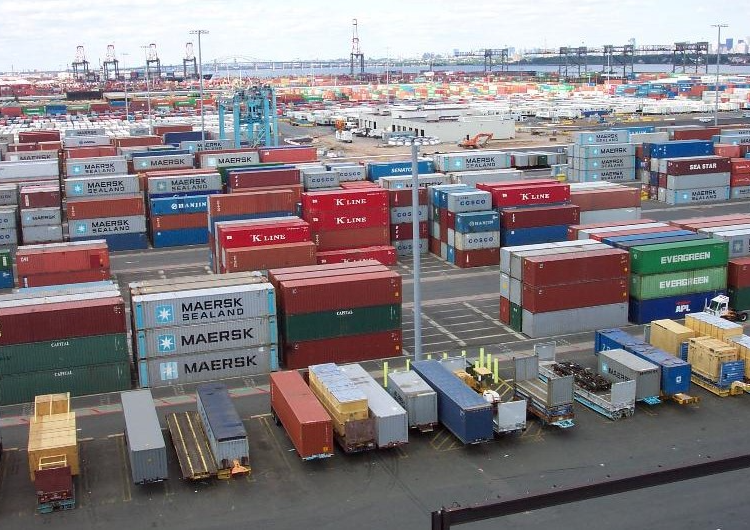In a saner clime, some persons, even if out of office, would have been summoned to offer explanation on how their action or inaction led to Nigeria’s $161 million revenue loss as a result of the withdrawal of the management of pilotage contract from Integrated Logistics Services (INTELS) Nigeria Limited.
INTELS, a logistics and facilities services provider in the maritime and oil and gas sectors, co-founded by former Vice President Atiku Abubakar and Gabriele Volpi, an Italian national, was engaged as Managing Agents of the Nigerian Port Authority (NPA) for oil industry related activities in the compulsory pilotage district within the Exclusive Economic Zone of Nigeria.
The contract commenced in June 2007 with an extension of 10 years in 2011 to terminate in August 2020. But in 2017, the NPA served INTELS a notice of termination of contract citing its refusal to comply with the Treasury Single Account policy of the federal government. However, recently, the NPA said cancelling the contract cost the government a whopping $161 million because it (NPA) lacked the technology to monitor the operations.
“After the expiration of the service boat management agreement, the authority took over the performance of the service through various departments and divisions. However, due to the constraints of not having the requisite technology to monitor the operations, the expected revenue dwindled and it resulted in the drastic reduction of revenue generation for the authority.
“An analysis of its impact on the authority’s revenue showed a sharp decline from $216 million and $209 million in 2014 and 2015 respectively under INTELS’ agency to $130 million and $99 million in 2020 and 2021 after take over by NPA. The situation in 2023 is even worse as the collection up to June 2023 was only $55.3 million,” the NPA noted.
There are a plethora of questions begging for immediate answers and only NPA can provide such. At what point did the NPA realise that it has no technology to effectively monitor the operations? Why was the needed technology and other equipment to make for seamless monitoring not made available before dispensing with the services of INTELS? Why was the contract cancelled in the first place since it was clear that NPA lacked the competence to monitor and ensure there was no revenue loss? If NPA knew INTELS had the requisite competence to handle the contract and ensure the nation gets the needed revenue, why did it look the other way when the decision to withdraw the contract was taken?
We note that this revenue loss spanned through a nine-year period during which there was conflict with INTELS that may not be unconnected with politics considering the fact that the Presidential Candidate of the opposition PDP for both 2019 and 2023 elections and incidentally the main challenger to the ruling APC’s two candidates in the two polls, Atiku Abubakar, until recently, used to have a substantial stake in the company.
It is distressing, in our view, that in a nation literally bogged down by serious revenue challenges in the face of mounting expenditure profile, including huge debt servicing commitments, an agency thought that was the appropriate time to take policy actions with cost implications.
As a newspaper, we view NPA’s explanation as not only vexatious and pedantic, but outrightly untenable and hence suggest that the agency owes Nigerians additional explanation. Beyond disclosing how much revenue was actually lost, the NPA owes the citizens detailed explanation as to who played what role in this loss.
Perhaps, it is pertinent to remind Nigerians that the disclosure of such a huge loss is coming against the backdrop of the alarm raised by the Senate Committee on Public Accounts that the NPA failed to provide explanation to why terminal operators refused to pay shipping and service boat dues to the federal government totaling $852m and N1.8 billion.
The Ahmed Wadada-led committee accused the NPA of failing to honour its invite to offer explanation on the non-payment as raised in the annual report of the Auditor General of the Federation.
We are worried at the attitude of government agencies that decline to cooperate with the National Assembly in the performance of its oversight functions. Regardless, we are compelled to remind NPA that failing to appear before the lawmakers is clearly in contempt of the parliament, an act that is inexcusable. However, we find it hard to explain what gives agencies funded by taxpayers’ money the effrontery to act in ways that run contrary to the interest of Nigeria and Nigerians. Could it be that the lawmakers have themselves compromised and are, therefore, morally weakened to act?
In the days ahead, Nigerians will wait for both the NPA and all those connected with this loss, no matter how remote, to provide cogent explanation on what happened and why. In the meantime, we urge the authorities to urgently put in place concrete measures to forestall further loss of much-needed revenue.





